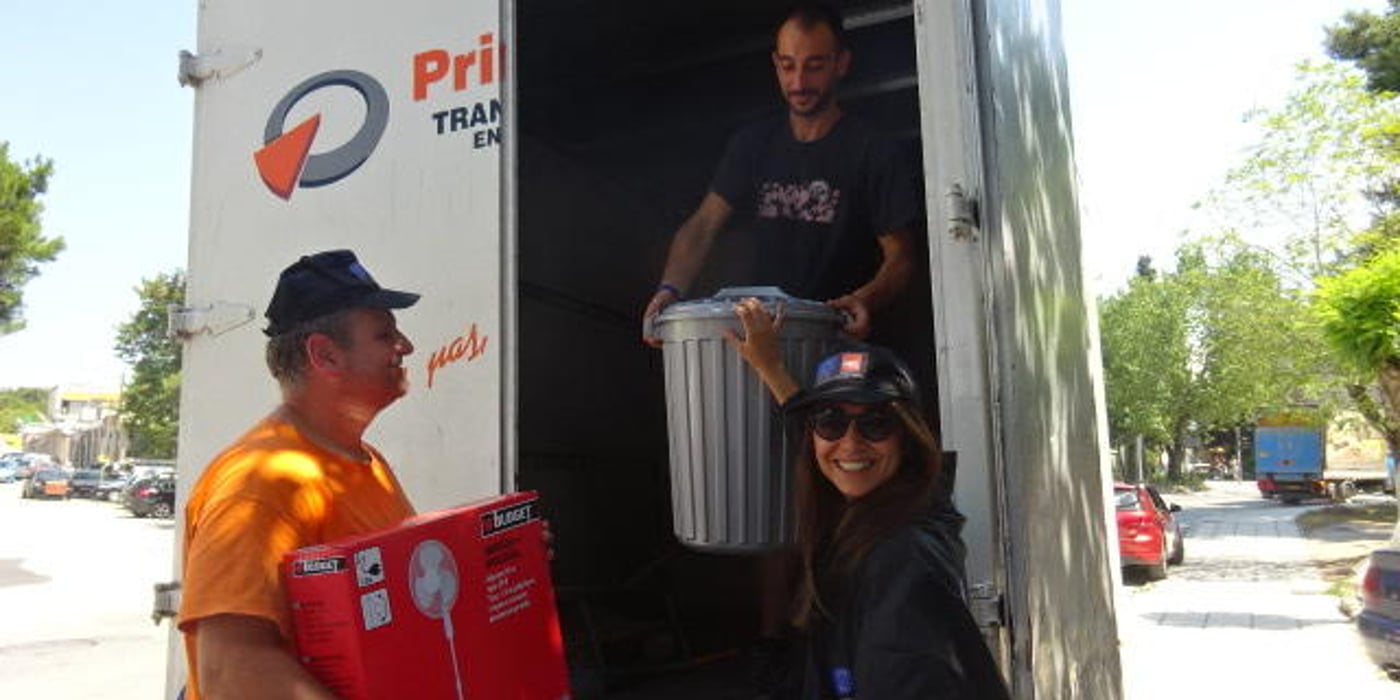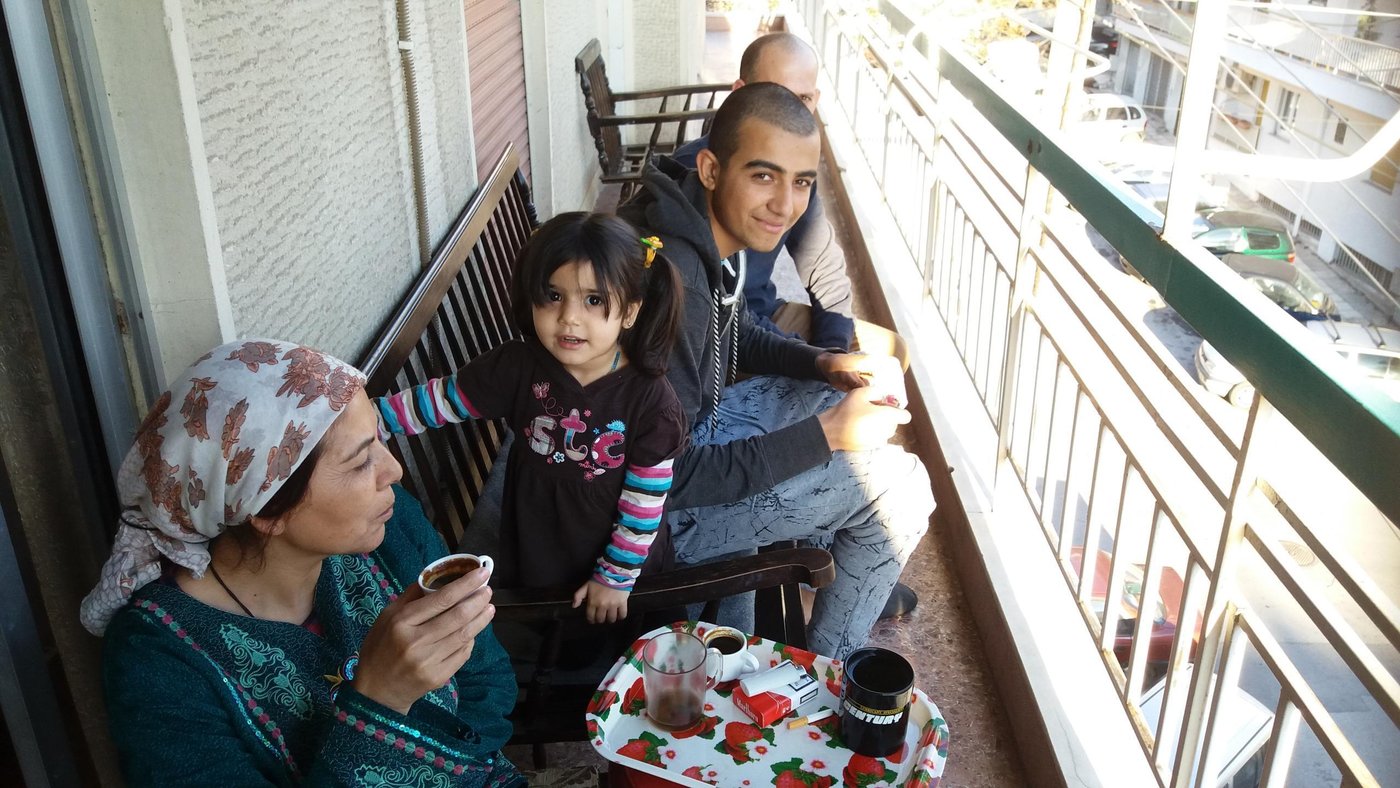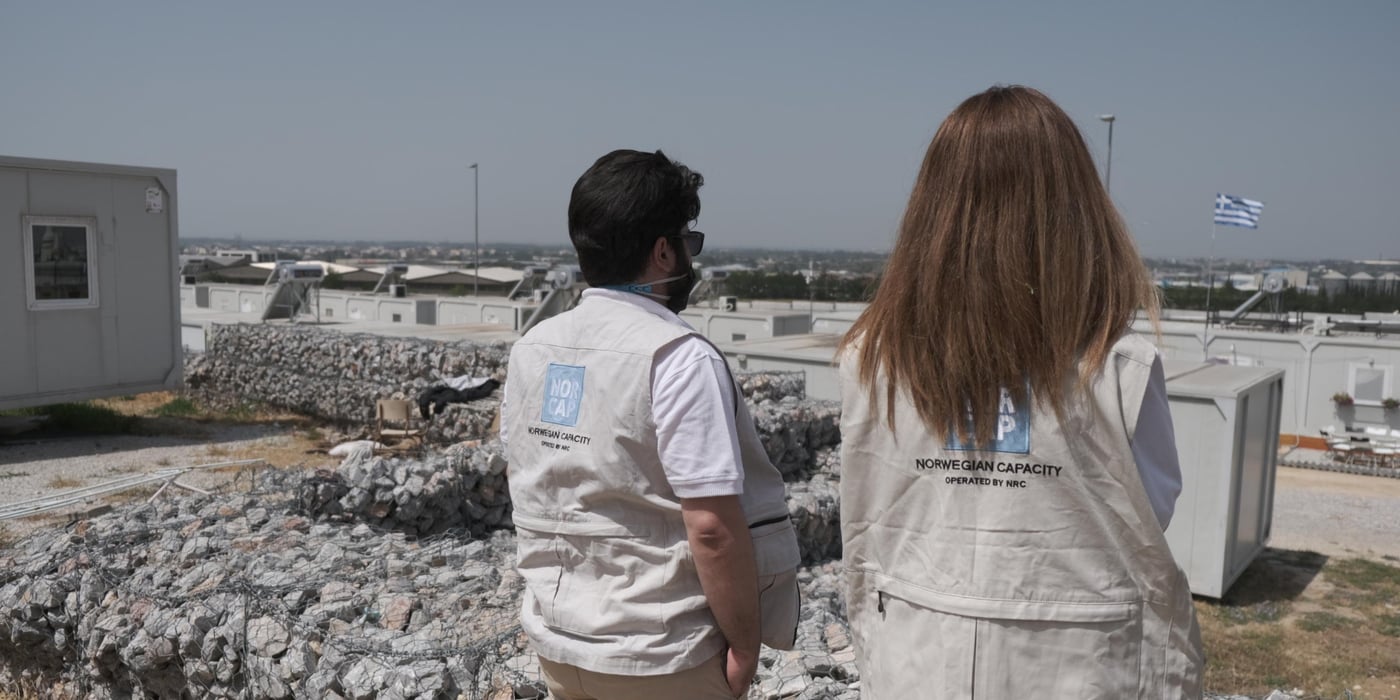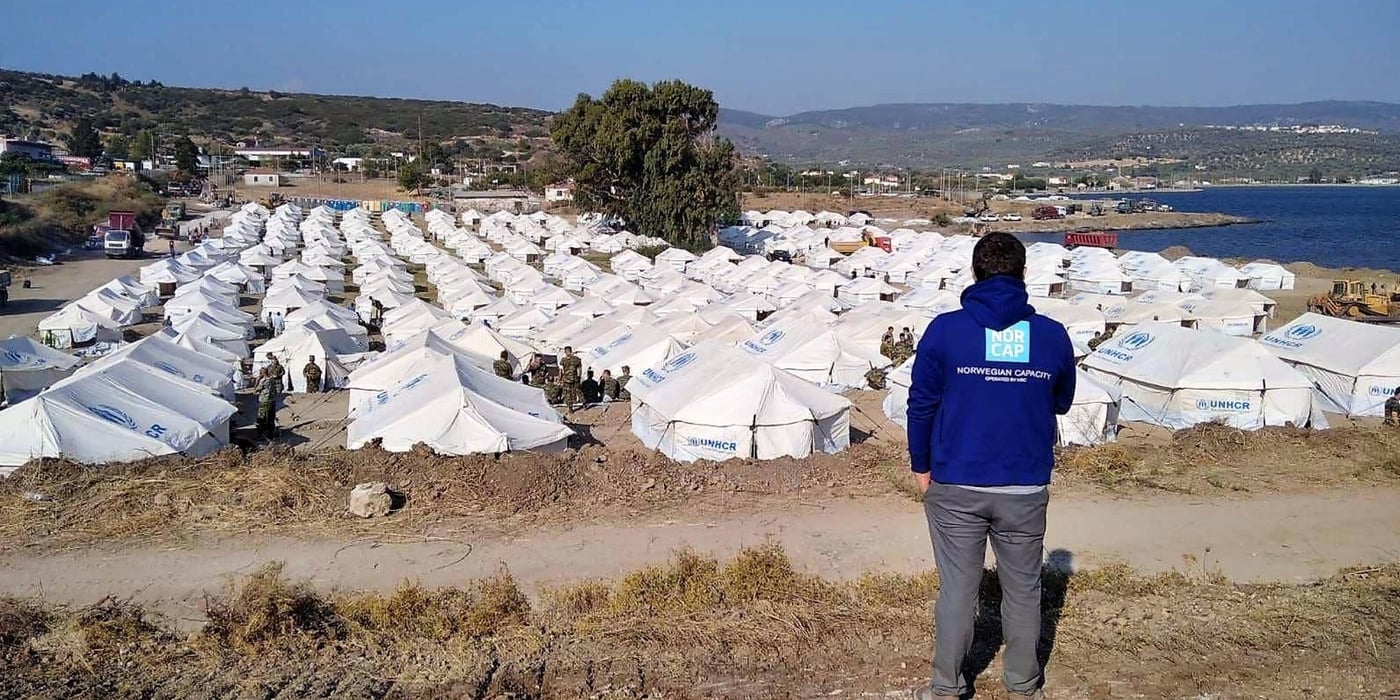
Every morning in the makeshift operations room of the Norwegian Refugee Council’s Thessaloniki offices, a squad of engineers assemble around a desk. Phone calls to landlords are made. Drivers are found. Clipboards are checked and cameras charged. Then each engineer navigates the streets of Thessaloniki to inspect apartments that may become home to a refugee stranded in Greece.
The process is repeated throughout the day. Since NRC put out a call to landlords to offer apartments on radio stations in the northern Greek city, the Hunting and Preparation team has worked non-stop in the search for suitable and affordable properties.
Swapping life in a tent or prefab container in a camp for an address, on a street in a city is the focus of NRC’s European Commission's Civil Protection and Humanitarian Aid department (ECHO) funded Urban Housing and Response programme. For the most vulnerable refugees stranded in Greece for more than a year – families, the elderly, the disabled – the programme provides a chance to return to normal life. Thanks to the ECHO cash programme, families can buy their own food and cook their own meals. People learn, or relearn, how to use public transport and move around in a city that isn’t being bombed or besieged.
In total, we’ve rented 200 properties so far in Thessaloniki. It gives vulnerable refugees a home, and at the same time, the project provides property owners with additional income in difficult times.NRC's country director in Greece, Gianmaria Pinto
City of Students
Thessaloniki is a city built by refugees. But it is also a city of students, drawing young people from as far as Athens and the islands to its prestigious Aristotelian University, one of the best in the country, and draining the market of small, affordable accommodation. It is also a city in crisis, in a country that has hiked taxes and cut wages and pensions for the past seven years to emerge from financial turmoil.
Many of the landlords who responded to the radio campaign had properties that have been shut for years, needing minimal repairs, but with no money, or incentive, to proceed. The NRC programme provided that incentive: apart from rental income, some repairs could be made, and NRC could assure the property owners that bills would be paid on time and the property would be returned in a proper condition.
The advertisements directly reached a pool of people who might not have their properties on the market. Radio stations reported queries from listeners to their stations, instead of the NRC helpline, seeking to speak to “En-arr-see, the people with the programme”.
From Camp to Street
Idomeni street in the neighbourhood of Menemeni is a reminder of the latest refugee crisis to buffet the city. Many of the refugees in northern Greece crossed to the islands from the Turkish coast and then journeyed to the northern Greek border town of Idomeni, where they found the borders to the rest of Europe shut.
Menemeni itself, named after Menemen in modern-day Turkey, was founded in 1922 by about 160 ethnic Greek families made refugees by the Greek-Turkish war. Many took the same route as this latest wave of refugees: Turkish coast, Greek islands, Thessaloniki.

But Menemeni is solidly part of Thessaloniki and Europe, with its streets named for ancient Greek statesmen and modern Greek saints, an American president and an assassinated Swedish prime minister. Busses bustle past the Hercules Bakery and flatbed trucks selling watermelons to the city centre, 20 minutes away.
In one quiet, narrow street, there is a man waiting to show the NRC engineer a “prospect”: a small two-room apartment, with a new air conditioner, a narrow kitchen and a functional but tiny bathroom. The engineer is impassive as she notes down what the landlord considers a reasonable price – that negotiation will come via the NRC’s lawyer. But she is confident that this is a “good lead” and could suit a family with small children.
Since the housing programme began, 559 people have benefited. Many of the residents leave Greece for another European country, although this process can take months or more than a year.
“It is crucial to give people who have been stranded in Greece for up to a year access to the city and to public services,” said Pinto. “This programme provides a step forward to an independent, normal life, allowing people to finally interact with Europeans in Europe – their new home.”




